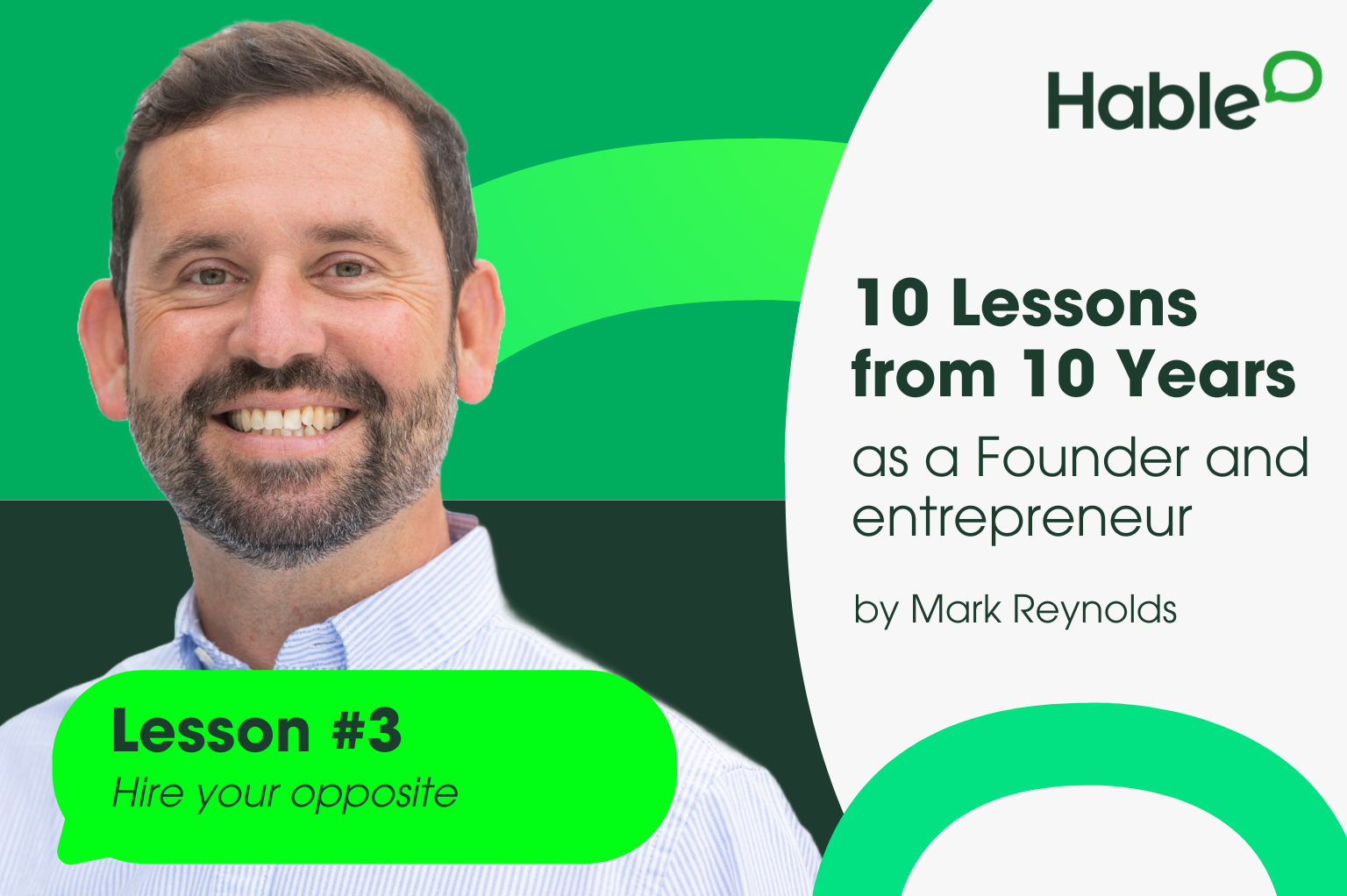
I have made this mistake countless times in the past; hiring people who are exactly the same as me. I guess it’s pretty obvious why that happens. They might have a similar approach to things, work in the same way as me, or think the same way that I do. So of course we get along and I want to spend time with them. But what I have learnt as an entrepreneur, is this isn't always going to help expand my business.
That’s why one of my biggest lessons is this: hire your opposite!
When I first became a manager and started hiring others, I would instinctively surround myself with lots of people who were “another me.” I thought it would be easier to manage people who did things the same way as me, and better to run a business with people who saw things the same way. But soon, I realised that this approach was more of a hindrance than a help. Imagine a room full of people who all love brainstorming but hate executing. Or a team where everyone is great at coming up with ideas but terrible at following through. Great at words, but terrible at numbers. The examples are endless.
At times, it could feel like trying to build a starting 11 with a team full of midfielders. When in reality, a good team needs a vocal keeper, a dependable centre back, and an aggressive striker. (Did I mention I used to be a football manager?!).
Why Hiring Your Opposite is So Important
What I have come to learn, is that when you hire someone who has a different skillset than you, it complements your strengths and covers your weaknesses. I am quite a big-picture thinker, and so hiring someone who is detail-oriented has been helpful to ensure that nothing falls through the cracks and my ideas get delivered. The diversity in skills that we now have across Hable has definitely led to a more well-rounded and effective team. There is real strength in that.
Having someone with a different approach can really challenge your thinking and push you out of your comfort zone as a Founder. I think it’s important to not just have “yes” people. But to have people who work for my company and who challenge things, don’t just do everything I say. It’s led to innovation, creative solutions and new ideas that I would never have even considered otherwise.
As well, different people approach problems in different ways. When we've had challenges or issues come up in the past, I have definitely benefitted from being able to draw on a variety of problem-solving techniques that exist within the team at Hable. Because we have a good mix of personalities and attributes, everyone approaches issues in a slightly different way.
Knowing what colour you are
There are lots of personality profile tools out there. My favourite – mostly because it is easy to understand and everyone can remember what type they are – is Insights. I have used the Insights Discovery test (for both myself and my team) - at RM, Microsoft, and now at Hable. It has a simple colour system, indicating whether people's preferences are Red, Blue, Yellow or Green. I won’t go into the detail now, but I am a Yellow/Red mix – meaning that some tasks which a Blue is good at, feel very alien (and quite energy draining) for me. So who should I hire, to do the jobs I am no good at? A blue. Of course, I’d much rather hang out with another Yellow/Red - and we’d have amazing conversations. But we would need the balance of some Blue/Green energy to keep us in check.
Hiring your opposite can be one of the best decisions you make as a leader and entrepreneur. It brings diverse skillsets, new perspectives, better decision-making, improved problem-solving, and enhanced creativity to your team. So, when your business reaches the point where you need to start hiring, don't just look for someone who is a carbon copy of yourself. Embrace the differences and hire someone who can complement your strengths, while also filling the gaps of your weaknesses. This is particularly important for your first hire.
If you know you’re not a detail person, find someone who is. Or you know you’re not a numbers person, find someone who is.
Remember, there is real strength in diversity.

